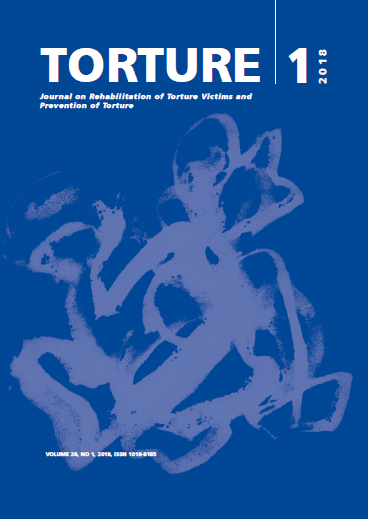Cultural logics of emotion: Implications for understanding torture and its sequelae
DOI:
https://doi.org/10.7146/torture.v28i1.105480Keywords:
Torture, shame, humiliation, cultural variations in emotion, treatment, recoveryAbstract
This paper explores the significance of cultural variations in emotion for the meaning and impact of torture, focusing on the dynamics of shame, humiliation, and powerlessness. Forms of physical and psychological pain and suffering share some common neurobiological pathways and regulatory systems that are influenced by social and cultural factors. All forms of torture follow an affective logic rooted both in human biology and in local social and cultural meanings of experience. Understanding the impact of specific forms of torture on individuals requires knowledge of their learning histories, and of the personal and cultural meanings of specific kinds of violence. Exploring cultural meanings requires attention to over-arching discourse, embodied practices, and everyday engagements with an ecosocial environment. Restitution, treatment and recovery can then be guided by knowledge of cultural meanings, dynamics, and strategies for coping with catastrophic threats, injury, humiliation, helplessness and loss.
Downloads
Published
How to Cite
Issue
Section
License
We accept that some authors (e.g. government employees in some countries) are unable to transfer copyright. The Creative Commons Licence Attribution-NonCommercial-NoDerivatives 4.0 International (CC BY-NC-ND 4.0) covers both the Torture Journal and the IRCT web site. The publisher will not put any limitation on the personal freedom of the author to use material contained in the paper in other works which may be published, provided that acknowledgement is made to the original place of publication.


